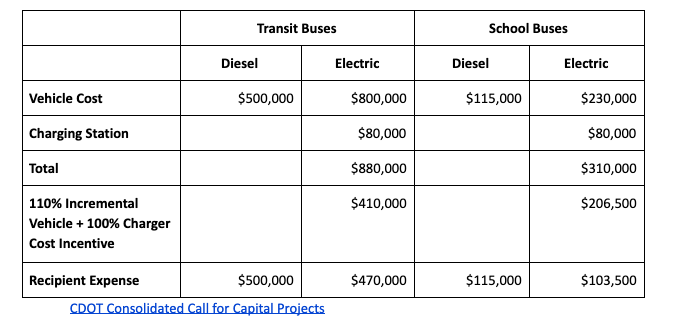
Matt Casale
Former Director, Environment Campaigns, PIRG
Last month, Florida became the last state to make public its draft plan for spending the Volkswagen settlement money. Every state in the nation has received money from Volkswagen's historic settlement with federal authorities over emissions control violations in the automakers "clean diesel" vehicles. Florida's share is $166 million. While the plan commits to new funding for electric vehicle charging infrastructure, the plan dedicates the rest of the diesel mitigation funding to the purchase of new diesel vehicles. We urged the state to amend the plan so that the funding is focused exclusively on electric vehicles.”
Former Director, Environment Campaigns, PIRG
Submitted via email to [email protected]
August 16, 2019
Thank you for the opportunity to comment on the proposed Beneficiary Mitigation Plan. This letter contains joint comments on the draft plan by Environment Florida, Florida PIRG and Florida Consumer Action Network (FCAN). We support a final plan that commits to spending the maximum allowable 15 percent on the purchase and installation of publicly available electric vehicle charging equipment and the remaining 85 percent on replacing old diesel school and transit buses with new, all-electric vehicles.
In May of this year, Environment Florida and Florida PIRG released a “Volkswagen Settlement State Scorecard,” in which we graded how well each state’s plan was designed to accelerate transportation electrification. Unfortunately, we were unable to give Florida a grade, because at the time it was the only state without at least a draft plan. Applying our grading criteria the recently released draft plan, the state would only receive 4/8 points, or a “D.” The plan would receive points for prioritizing buses, making funds available for electric vehicle charging infrastructure, and seemingly precluding the funds from being used on alternative-fuel technologies like compressed natural gas. However, the plan would lose the remaining four points by prioritizing diesel bus replacements over electric.
In our view, the VW funds should be used to support a fundamental market transformation that will both reduce emissions today and set us on a pathway towards a zero emissions future. In addition to making investments that will reduce NOx emissions, the state should also seek to maximize the co-benefit of reducing emissions of greenhouse gases (GHG).
The draft Florida Beneficiary Mitigation Plan fails to consider carbon pollution or climate change in its analysis, focusing only on reducing criteria pollutants like NOx, ozone, and particulate matter. Florida should improve this draft by expanding the scope of its emissions impact analysis beyond criteria pollutants to also include greenhouse gases (GHGs). Such a focus should lead the state to direct the resources made available by the Volkswagen settlement toward the deployment of zero-emission vehicles — in particular electric transit and school buses — and supporting charging infrastructure.
Funds derived from a “clean” diesel emissions scandal should not be invested primarily in more “clean” diesel vehicles. The Volkswagen settlement is a potentially transformational opportunity to build momentum towards a truly clean transportation system. To better capture the opportunity, the funding should focus exclusively on electric vehicles, and more specifically on electric transit and school buses. Electric motors offer the greatest air quality and climate benefits of any alternative-fuel technology, and a complete transition to electric transportation is critical for the future of Florida.
While the investments from the Volkswagen settlement are relatively small, they can unlock and demonstrate the advantages that will come from further investment in transportation electrification — helping Florida’s transit agencies and school districts understand how they can benefit from moving to electric technology. By investing in electric vehicle technologies, Florida can substantially reduce public exposure to harmful pollutants and help address climate change while saving millions of dollars in fuel and maintenance costs.
Electric Buses are Cleaner than Diesel Vehicles
Electric transit and school buses are the cleanest buses on the road. No matter the electric grid, electric buses are cleaner than their diesel counterparts. Across the United States, electric buses have lower global warming emissions than diesel and natural gas buses, even in cities with power grids that depend on coal and natural gas power plants. On average in the United States, a typical diesel bus would have to attain 12 miles per gallon to have the same lifecycle global warming emissions as an electric bus. Those are the emissions released during the production of the fuel and operation of the bus. The comparable diesel bus today gets only 4.8 miles per gallon. In terms of carbon emissions that cause and worsen climate change, putting one new electric bus on an average U.S. road is equivalent to taking 2.5 diesel-powered buses off the road.
Of course, electric buses powered by cleaner sources of electricity, like wind or solar, are going to be cleaner than those powered by more dirty sources, like coal. But unlike diesel and natural gas buses, where vehicle emission performance is fixed over the lifetime of the vehicle, an electric bus purchased today will get cleaner each year as the electricity generation mix shifts further away from coal and toward clean energy.
The Economic Benefits of Electric Buses
Today the upfront cost of purchasing an electric bus is higher than a diesel bus, but over the full lifetime of the vehicles, electric buses offer substantial monetary savings over diesel. Electricity costs less than diesel, and electric buses tend to have smaller maintenance needs. According to the Chicago Transit Authority, each electric transit bus in its fleet saves the city $25,000 in fuel costs every year. Greensboro, North Carolina estimates that it will save $300,000 to $350,000 on each of 10 electric buses the city recently purchased, compared to the lifetime cost of comparable diesel buses. As the cost of battery technology continues to decrease, the economic advantages of electric buses will only grow in the coming years.
Transit agencies and can use these savings to purchase more clean vehicles and/or improve the frequency and reliability of their service. Because of the economic advantage, Bloomberg New Energy Finance predicts that 84% of new bus purchases will be electric by 2030. The industry is growing quickly, and as of the beginning of 2019, 13 percent of all U.S. transit agencies have electric transit buses in their fleets, or have ordered them. Florida should use the VW settlement funds strategically to prepare its school districts and transit agencies for this quick transition.
According to the Center for Transportation and the Environment, there are currently ten electric bus manufacturers in the U.S. market including New Flyer of America, Proterra, El Dorado National, VanHool, Complete Coach Works, Gillig, Green Power Bus, NovaBus, MotorCoach Industries, and BYD.
Project Priorities:
Volkswagen settlement money presents states with a unique chance to accelerate transportation electrification, and this money should be focused on that goal. In order to maximize the impact of the Volkswagen settlement funds in Florida, we recommends prioritizing projects that:
Accelerate adoption of electric vehicles and equipment
Promote electrification technologies in public transportation fleets.
Accelerate fleet turnover to the cleanest technology.
Ensure cost-effectiveness.
Leverage additional matching funds.
The funding should focus on electrifying transit and school buses. These vehicle types offer the additional advantage of public visibility with transit riders and school children. Both of these demographics are disproportionately exposed to the adverse health impacts of air pollution and can therefore benefit the most from clean vehicles in their communities.
Incentive Program Design:
The draft plan calculates potential emissions benefits from using the money of diesel versus electric technology under the assumption that it will use the funds to subsidize the entire cost of a bus. That is, if a transit agency wants to buy a $500,000 transit bus, they would apply for $500,000. If they wanted to buy an $800,000 electric bus, they would apply for $800,000. Using that formula, of course the money could purchase more of the cheaper diesel buses than electric ones.
But Florida doesn’t have to subsidize the full cost of buses. In fact, the VW money could be better utilized as an incentive to purchase electric vehicles if instead of covering the full cost, it was just used to cover the incremental costs between a diesel and electric bus. This would allow the money to be stretched further and increase the number of electric buses we could purchase — thus increasing the emissions reduction benefits.
In order to attract interest in the program while simultaneously spreading the funds over as many vehicle replacements as possible, the vehicle incentives should cover 110% of the incremental up-front cost of purchasing an electric vehicle versus a conventional diesel vehicle. The grant should also include the full cost of any necessary charging stations, a piece of equipment that can serve multiple electric vehicles.
This “incremental cost” approach has worked well in other states. By covering only a portion of the vehicle replacement cost instead of the full amount, this program design could replace twice as many vehicles as the current program. The table below provides transit and school bus incentive examples from the Colorado Department of Transportation program.

Light Duty Zero Emission Vehicle Supply Equipment:
We thank the DEP for committing to spend the maximum amount (15 percent) of the VW settlement funds on light-duty charging infrastructure in the draft plan. Given the limited amount of funding for light-duty charging infrastructure, the DEP should consider capping the incentive levels for DC Fast-charging (DCFC) stations in order to spread the money over a greater number of charging stations.
The total project costs for DCFC stations, including the cost to purchase and install the electric vehicle supply equipment (EVSE), and the cost to upgrade the existing electrical equipment (make-ready infrastructure), can exceed $100,000 per charging station. At this price point, the impact of the draft plan will be limited to a small number of charging stations.
Site hosts and electric utilities have a financial stake in the deployment of EV charging infrastructure, and should therefore be encouraged to share the cost of charger installations. For this reason, state and utility charger incentive programs in other states have limited the incentive levels in order to deploy more stations, and with it, more electric vehicles. For example, the Charge Ahead Colorado program limits the DCFC, or Level 3 charger, incentive to $30,000 per multiple-port station. The largest electric utility in Nevada, NV Energy, recently proposed a DCFC incentive of $400 per kW up to $40,000, which they expect will offset approximately 50-57% of the equipment costs. The Southern California Incentive Project provides DCFC rebates of up to $70,000 per DC fast charger or 75% of the total installation project’s cost, whichever is less. A more comprehensive list of state rebate and incentive programs can be found on the Clipper Creek website.
We encourage the DEP to explore similar charger incentive caps in order to spread the Light Duty Zero Emission Vehicle Supply Equipment funds over a larger number of charging stations. This DC fast charger incentive cap should be designed in a way that increases the deployment of charging stations without dampening interest in the program.
With these changes, we believe that the state could set the stage for significant market transformation towards zero emission vehicles, rather than simply accelerating diesel vehicle replacements by a few years. Thanks again for the opportunity to comment.
Former Director, Environment Campaigns, PIRG
